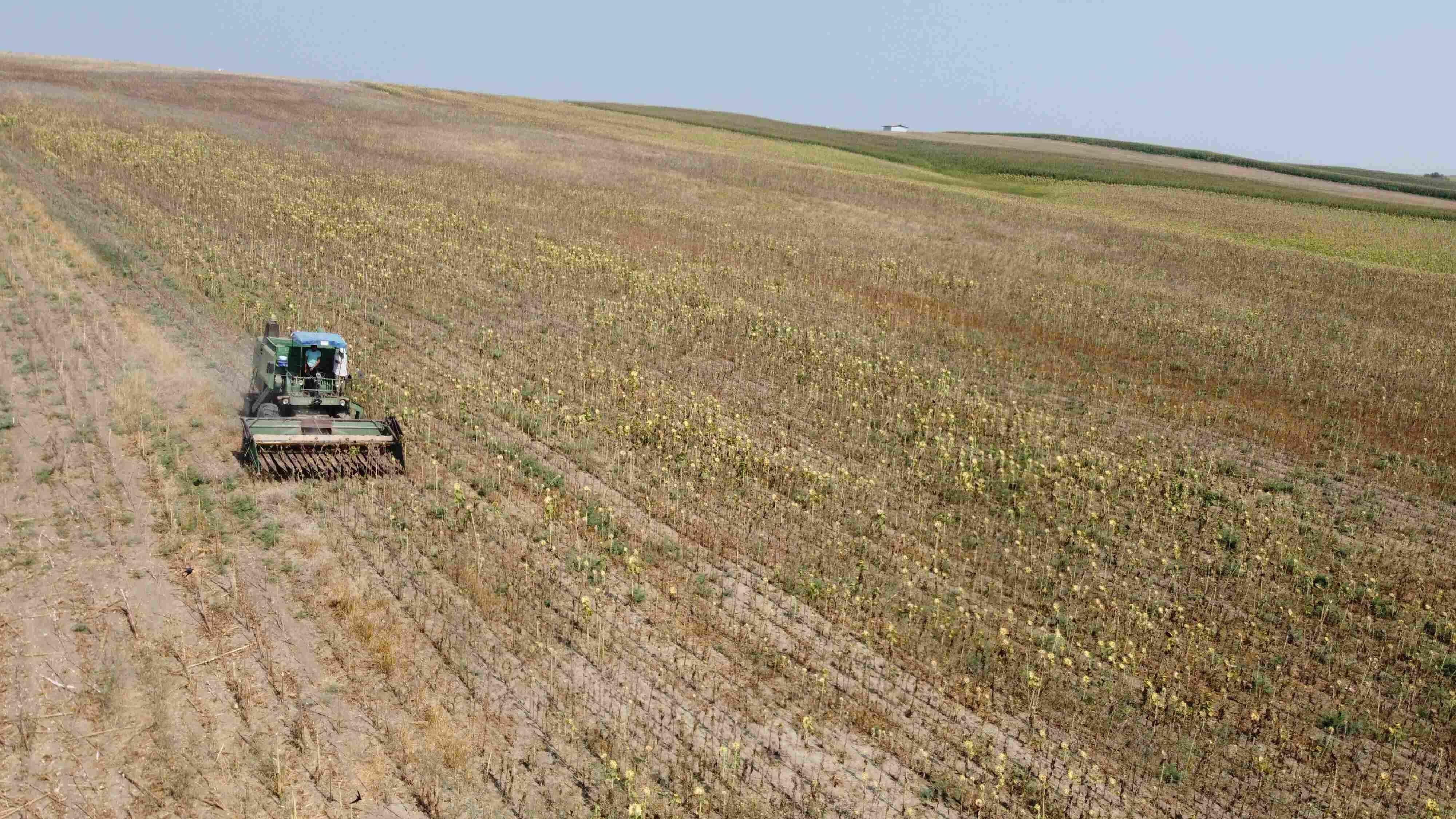
Türkiye is grappling with one of the most severe droughts in the past 65 years, crippling agricultural output and inflicting heavy losses on farmers.
From Ankara to İzmir, Bursa to Konya and Hatay to Adana, the lack of rainfall and soaring temperatures have pushed water resources to critical levels, with the agricultural sector bearing the brunt.
The impact on crop development has been stark: Growth has slowed, yields have plummeted and, in some regions, harvests have been brought forward due to extreme conditions. In Adana, for instance, the sunflower harvest was accelerated by 20 days due to scorching heat and dry winds. Yields that typically reach 200 kilograms per decare have dropped to as low as 80–100 kilograms.
Wheat production, which in recent years has hovered around 21 million tons, is expected to fall below 18 million tons this season. In Ankara, Ziraat Engineer Kerem Güler reported that fields expected to yield 700–750 kilograms are producing only 450–500 kilograms.
Rice cultivation in Edirne, which supplies around 40 percent of Türkiye’s needs, is also under threat. The Tunca River, a vital source of irrigation, is nearing depletion. Farmers warn that rice fields require another 70–80 days of water to survive, yet many plots in hilly, water-scarce areas are producing less than half of their usual yield.
The Turkish Statistical Institute (TÜİK) said in May that total crop output is projected to decline significantly in 2025 compared to the previous year. Field crops, including cereals and other non-forage plants, are expected to decrease by 5.3 percent, vegetables by 1.7 percent and fruits, beverage and spice crops by a staggering 24.4 percent.
Call for urgent support
According to Şemsi Bayraktar, president of the Turkish Union of Agricultural Chambers (TZOB), farmers are facing up to 85 percent yield losses in some regions.
In parts of Southeastern and Central Anatolia, the situation is so dire that some farmers have abandoned harvesting altogether, unable to cover costs.
Bayraktar emphasized the urgent need for government intervention, calling for the postponement of farmers’ debts to Ziraat Bank and Agricultural Credit Cooperatives for at least one year, interest-free.
He warned that the upcoming sunflower harvest is also at risk, with high temperatures and low rainfall causing stress to the plants and threatening further declines in productivity.